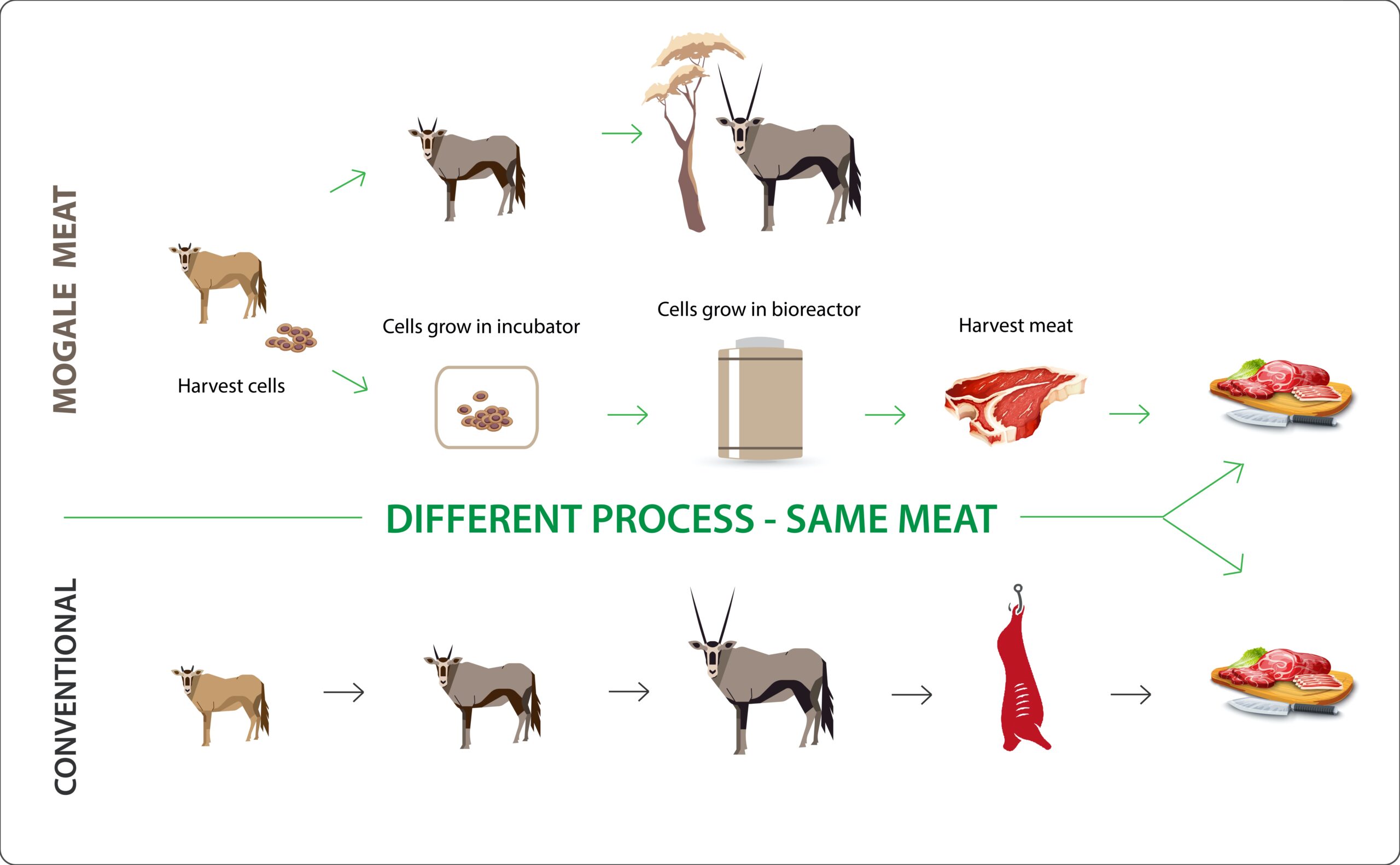Environment Tech
Come up to the lab and see what’s on the slab
Worried about feeding a hungry planet? Don’t have a cow, rather cultivate one, writes MAXCINE KATER.
The global human population is expected to top 9.8-billion by 2050 (from the current 8-billion) and all those extra mouths will need feeding – most will be wanting meat.
We know that the emissions of cows, and the discharges of billions of ruminants, poultry and pigs, produce an estimated staggering 15% of global greenhouse gas emissions each year. We also know that biodiversity is one of the best ways of mitigating climate change. Yet, unsustainable farming practices continue to devour great swathes of natural space where wild animals might otherwise thrive. Apart from pastures, feed must be produced. What can be done?
Come up to the lab and see what’s on the slab
“Well, we might start by growing meat”, says Dr Paul Bartels, a pioneer in the field of cultivated meat and founder of WildBio, Africa’s first cultivated game meat company. “We might also create a global demand for wild meat from Africa’s savannas”, says Wiseman Ndlovu, of the African Wildlife Economy Institute at Stellenbosch University.
Bartels and Ndlovu were among the speakers at a recent online seminar hosted by Oppenheimer Generations Research and Conservation. The webinar explored ways in which game meat, wildlife economies and cultured meat might coexist without compromising the environment.
Bartels, a veterinarian with an MSc in Zoology, together with Tshwane University of Technology (TUT) and the University of KwaZulu Natal (UKZN), are credited with creating the first lab-grown hybrid chicken nugget in Africa. He explained that cell cultures were collected from different sources to stock cell banks. The banks supplied a cell production process to feed the growing cultivated meat industry. “Think of it like a brewery for meat where tiny cells are taken from a live animal, a chicken, for example, and then grown or brewed in a laboratory,” he says.
Wild, wild alternatives
Ndlovu, a researcher and writer with a keen interest in supporting agriculture and sustainable businesses, believes we should be encouraging the consumption of wild meat as a means to rewild and restore landscapes.
“Wild meat has the potential to help balance the demands for protein from a growing population, with the need to protect and maintain our biodiversity. Rather than preventing the harvesting of wild meat as we are often doing now, we should be exploring ways in which we can coexist with nature. But this will require a re-look at conservation policies, to see where balance can be found”, he says.
“Current practices in the conservation sector are mainly focusing on the protection and stopping the use of wild meat species. Let’s reintroduce wild meat species and also consume and benefit from them by not removing them or stopping the use of these animals’. He says.
Ndlovu asserts that existing conservation policies put hurdles in the path of the harvesting and consumption of wild meat. This creates hassles for communities and conservation areas. “We have seen people jumping fences, coming into the parks or coming into the conserved areas and putting snares, poisoning animals in order to get the protein that is provided by the wild meat species.

Bring on the change
Lactitia Tshitwamulomoni, director of the Department of Forestry, Fisheries and the Environment’s wildlife economy programme, who has 15 years of experience in conservation and developing sustainable policies and awareness, says the government wants change.
She told the webinar that the Department is promoting the growth of the game meat industry and wildlife ranching through its national game meat strategy. The strategy, she says, enabled the creation of a formalised and transformed game meat industry where the aim was to provide environmentally-sound sources of food while supporting economic growth and rural development.
But consolidating views of stakeholders from different backgrounds and interests, was not an easy task, says Tshitwamulomoni. For example, the hunting lobby promotes hunting as the only viable means of financing sustainable conservation in Africa. They face strong opposition worldwide from growing numbers of people who have moral objections to hunting. At the same time, we need to recognise that hunting and harvesting wildlife for food is deeply rooted in ancestral and modern African culture. But current conservation policies criminalise those who hunt or harvest wildlife for game meat and exclude them from decision-making.
Science non-fiction
Back to the future and the cultivation of meat in laboratories…
The phenomenon is still relatively new and to date only Singapore and America have passed regulations for its production and sale. South Africa has a long way to go in developing a market for safe, high-quality cultivated animal protein. Don’t expect to see lab-grown fillet on the menu at your steakhouse anytime soon, but the potential is certainly there to provide consumers with a multitude of tasty alternatives while easing the strain on the environment, says Bartels.
For the full conversation, watch the webinar on the Oppenheimer Generations Research and Conservation (OGRC) YouTube channel: https://www.youtube.com/watch?v=OEQaNIxQjeg
* Maxcine Kater is marine biologist and environmental officer at the Department of Forestry, Fisheries and the Environment.









